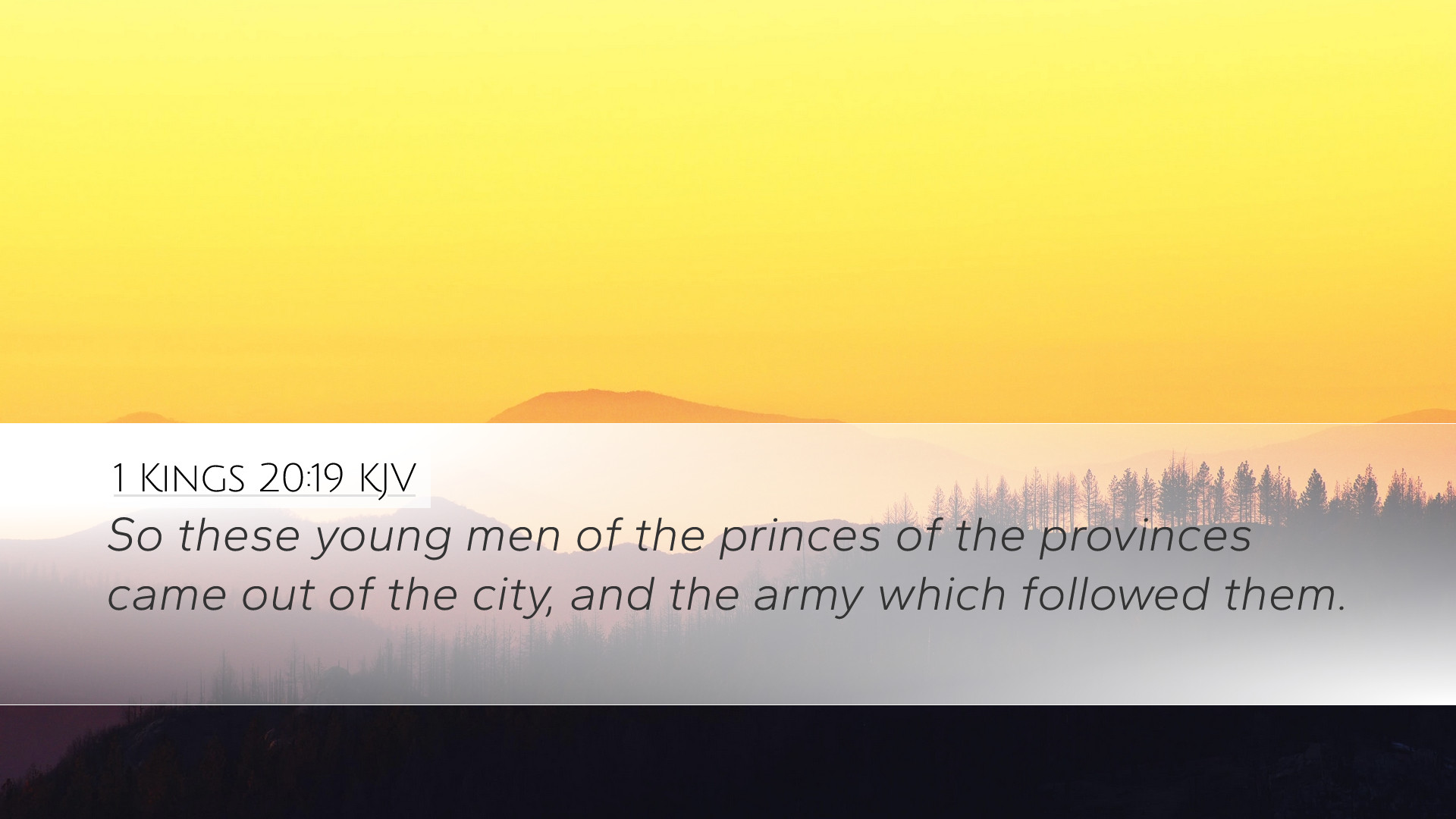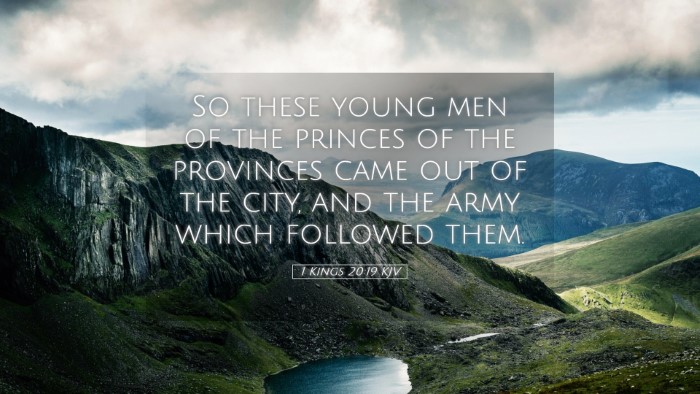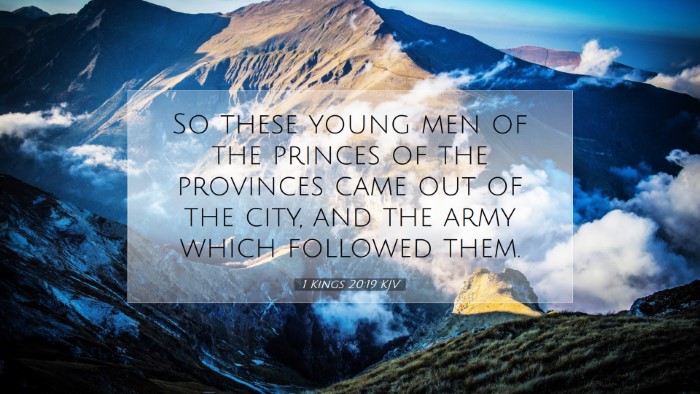Commentary on 1 Kings 20:19
Verse Overview: 1 Kings 20:19 states, "So these young men of the governors of the provinces went out of the city, and the army which followed them was killed." This narrative occurs amid the conflict between Israel and Aram, focusing on the outcome of a strategic engagement based on God's providence and Israel's military structure.
Contextual Background
The events of 1 Kings 20 take place during the reign of Ahab, king of Israel, when Ben-Hadad, king of Aram, besieged Samaria. This chapter reveals not only the political and military turmoil of the time but also God's sovereignty over Israel's affairs.
A military strategy was set into motion following prophecies delivered by the prophet Elisha, confirming God’s support for Israel. Thus, the conflict represented not only a physical battle but a spiritual one, highlighting the importance of faith in divine intervention.
Insights from Commentaries
Matthew Henry's Commentary
Matthew Henry explains that the young men sent by the governors represent Israel’s military leaders, who may not have fought in previous battles. However, their obedience and the divine providence are of utmost importance. Henry emphasizes that God's presence can turn the tide of battle even when the forces seem insufficient.
He notes that the rout of Ben-Hadad's armies by these young men signifies that victory comes not from mere numbers but from God’s support. This battle underlines the theme of reliance on divine strength rather than human capacity, illustrating that “it is not by might, nor by power, but by my Spirit, says the Lord” (Zechariah 4:6).
Albert Barnes' Notes
Albert Barnes elaborates on the tactical parameters of the conflict. He explains that Ahab's forces comprised a small but motivated group of principled men led by the young officers. Barnes remarks that the young men’s leadership and bravery reflected the hope of Israel amidst overwhelming odds.
Barnes articulates the larger narrative of the chapter by linking the military loss of the Arameans to the prophetic assurance provided by the Almighty. For Barnes, the account highlights that even the seemingly insignificant can triumph should they operate under divinely ordained leadership and strategy.
Adam Clarke's Commentary
Adam Clarke focuses on the miraculous elements of this verse as he deliberates on how God orchestrated the defeat of Ben-Hadad. Clarke draws attention to the nature of the warfare described and the role of faith-filled leaders in gaining victory.
Clarke identifies the parallel between this victory and Elijah's victories, suggesting that God utilizes each generation's leaders to achieve His purposes. Clarke also underscores the idea that God enables those who are willing to enact His will, as evidenced by the role of Ahab, an often-debated figure in the text.
Theological Implications
The text compels readers to consider the intersection of faith, leadership, and divine assistance. The roles of the young men in this narrative represents a larger theme of hope for Israel, emblematic of renewal and empowerment under God’s guidance.
Leadership
This passage calls attention to the significance of leadership in spiritual and temporal contexts. Pastors, theologians, and church leaders can draw parallels between this narrative and contemporary leadership challenges faced within church communities.
Faith in Divine Deliverance
The overwhelming odds against Israel serve as a profound reminder that faith in divine deliverance is fundamental. The message of reliance on God's might is timeless, encouraging believers to trust in God when facing insurmountable challenges.
Practical Applications
- Faithfulness in Leadership: Encourage leaders to remain steadfast in their faith and dedicated to seeking God's wisdom before undertaking any task.
- Participatory Warfare: Teach the community about the necessity of participation in spiritual battles, understanding that each person plays a vital role.
- God's Provision in Adversity: Use this passage to illustrate how God provides assistance and support during trying times, instilling hope and trust among congregants.
Conclusion
1 Kings 20:19 resonates powerfully through the ages, revealing the nature of God’s sovereignty in conflict, the crucial role of leadership, and the reliance on faith for victory over adversity. The insights provided by Matthews Henry, Albert Barnes, and Adam Clarke deepen our understanding, challenging us to embody the faith and courage exhibited by the young men leading Israel into battle.


